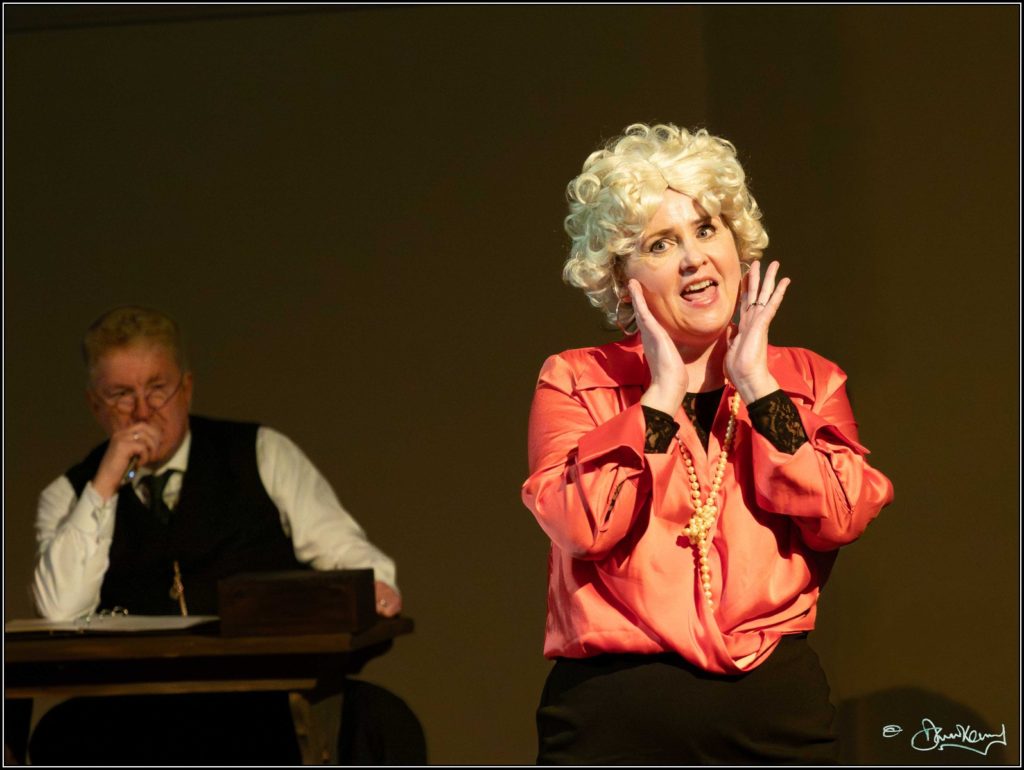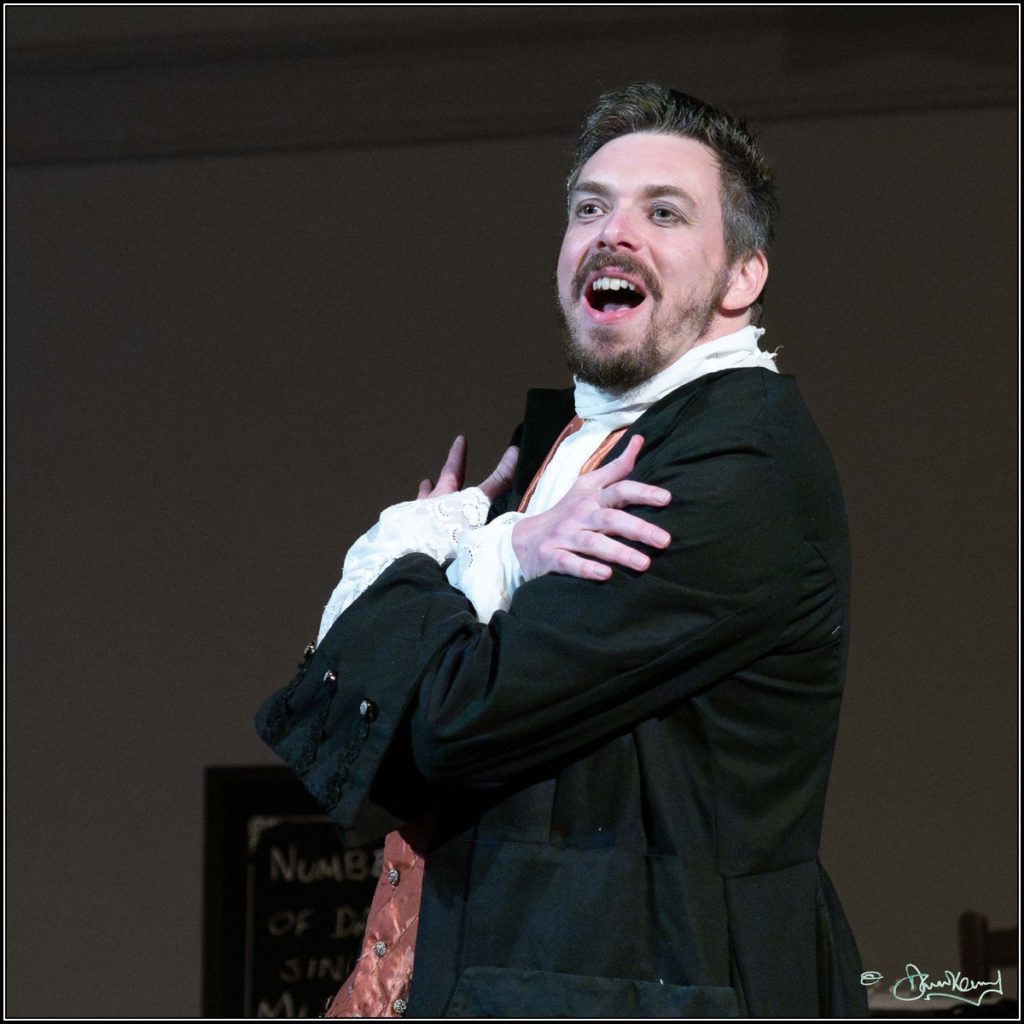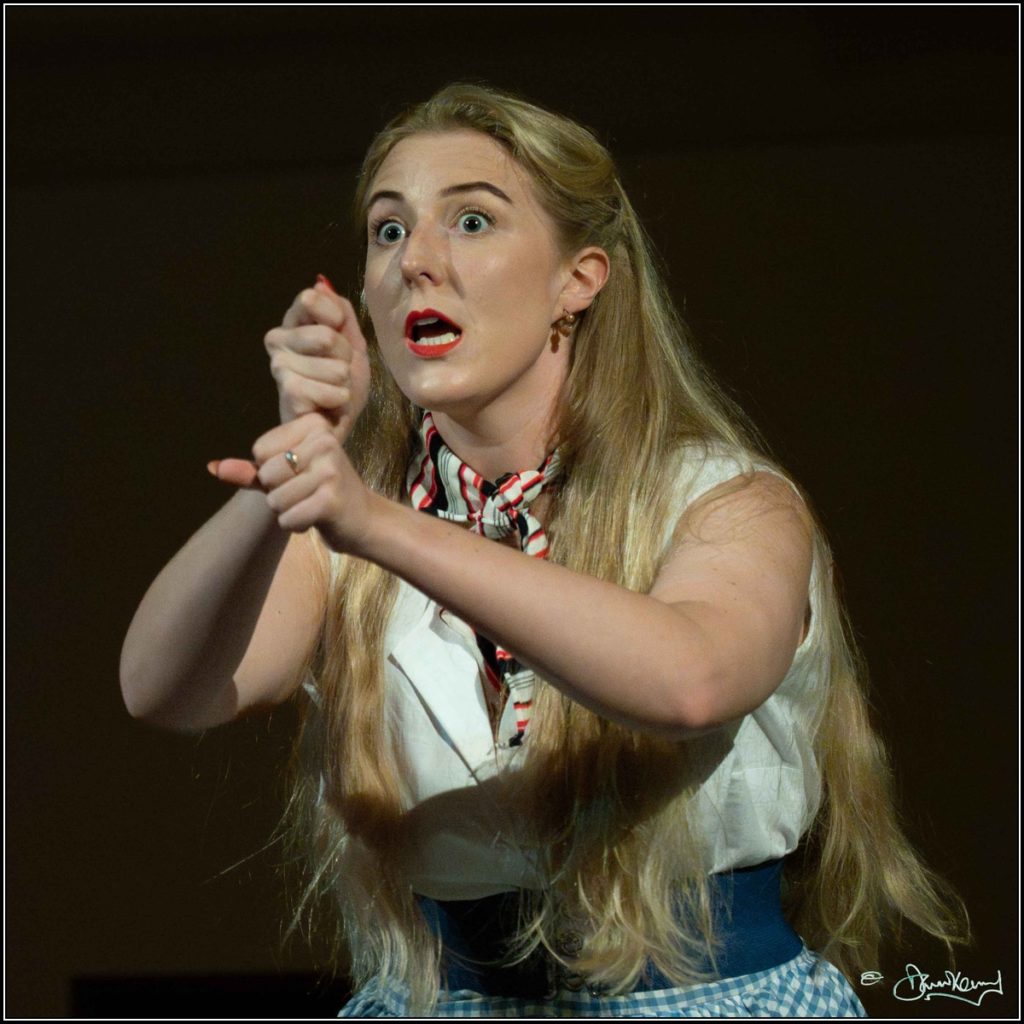
Adrian Cook’s Peachum and Cathy Atkin’s Mrs Peachum in York Opera’s The Beggar’s Opera. All pictures: David Kessel
YORK Opera is back with a spring in its step. John Gay’s ballad opera of 1728, now nearing its 300th anniversary, was given lively and sometimes sparkling treatment by its director, Chris Charlton-Matthews, offering the company an opportunity to show its strength in depth.
The choice of venue, The Citadel in Gillygate, York was not an easy option. With the audience seated on three sides, mostly at tables in cabaret style, the performance was virtually in the round. This meant that much of the dialogue came and went, depending on where the performers were facing and, as so often with singers of all shades, words were clearer in song than in speech.
The production firmly reminded us of the wealth of our musical heritage, thanks to the composer Johann Pepusch – Berlin-born but London-based for more than 50 years – who gathered together its 69 songs mainly from British ballads, alongside several by living composers including Purcell.
This production gained immensely from its string quartet, oboe (Alex Nightingale) and harpsichord (Tim Tozer), conducted by John Atkin, who delivered a consistently vivid underlay.

Mark Simmonds’s Macheath: “Every inch the dashing womaniser” in York Opera’s The Beggar’s Opera
At the head of proceedings was Adrian Cook’s determined, ruthless Peachum, who was the undoubted mayor of this unruly parish, gamely supported by Cathy Atkin’s Mrs Peachum and Hamish Brown’s Filch.
Alexandra Mather as their faux-naive daughter Polly and Sophie Horrocks as the more streetwise Lucy Lockit – rivals for the love of highwayman Macheath – were well contrasted, while Mark Simmonds was every inch the dashing womaniser they pursued.
There was a notable contribution, too, from Anthony Gardner’s gaoler Lockit – a David Jason look-alike – whose dialogues with Peachum were outstanding. The chorus was full-throated rather than subtle, but cameos from chorus members added considerable colour and kept up momentum.

Alexandra Mather’s faux-naive Polly Peachum
Even so, the performance lasted three hours and would have been punchier with half an hour excised.
The props by Teresa Carr and Jane Carr – a bar for the tavern, a desk for Peachum’s ‘office’ and a high trellis for the bars of Newgate prison – were more than enough to set the scenes, and Jane Woolgar’s choreography was consistently appealing.
The decision to dress the cast in costumes of every era (by the ever-imaginative Maggie Soper), to illustrate the maxim that the poor are always with us, was understandable but confusing.
The jollity of the proceedings was anyway inevitably at odds with the poverty-riddled story. The prologue and epilogue by the Beggar himself, Ian Thomson Smith, ensured a firm start and a happy ending.
Review by Martin Dreyer
